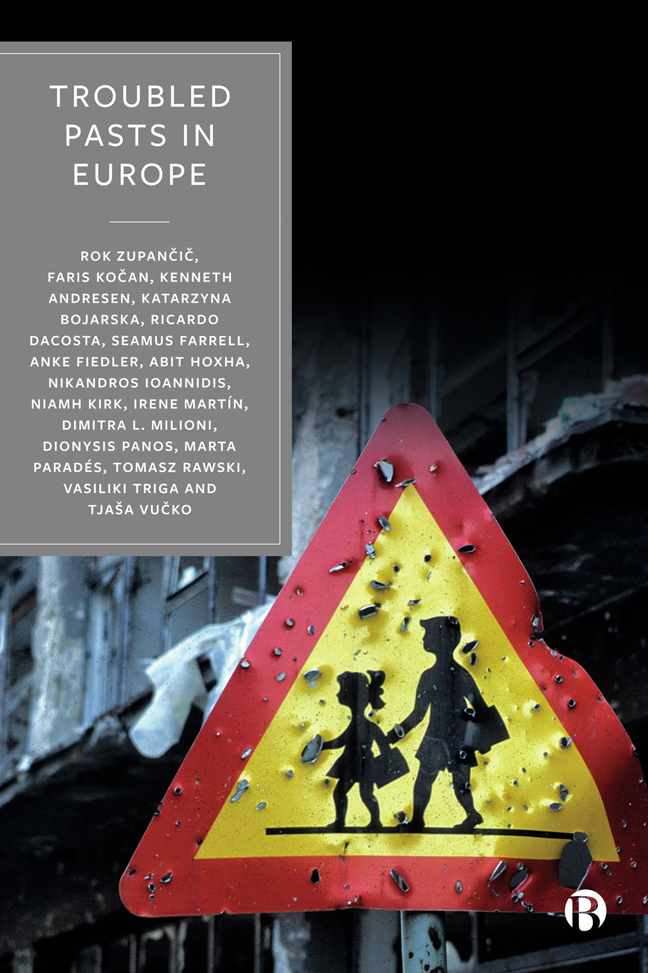 Troubled Pasts in Europe
Troubled Pasts in Europe Published online by Cambridge University Press: 25 January 2024
The European integration project, and along with it the survival of the European Union (EU), is currently challenged by deep-rooted, revived or emerging sources of conflict and signs of disintegration such as the European financial crisis, the refugee and migration crisis, and a political crisis, the rise of populism, radicalization and reactionary politics. Simultaneously, age-old antagonisms between and within European nations are being galvanized and openly nurture explicit anti-EU public sentiments. Many of these conflict discourses are traced back to problematic historical legacies of Europe, which, far from being ‘settled’, continue to make their way into the public discourse.
Responding to this problem, academics, experts and institutions – including the EU, conceived and largely established as a ‘peace project’ per se – constantly look for ways to work through these conflicts by supporting research endeavours. The RePAST project was one such initiative that aimed at investigating how European societies deal with their troubled pasts today. ‘Troubled past’ is understood in this book in a wide sense, covering the Second World War, including the Holocaust and National Socialism, communist pasts, authoritarian pasts, interethnic conflicts and colonial pasts. Grown out of the project RePAST, the idea of a book such as the current one, which offers concrete strategies and recommendations for mitigating the negative consequences of troubled pasts on the European integration, is very timely. A series of internal and external crises (for example, financial crisis, Ukraine crisis, refugee crisis, rise of illiberalism in Central and Eastern Europe, Brexit) have contributed to the upsurge of various types of identity and memory politics that are undermining the ideational foundation of the European integration (that is, a ‘success story’ that managed to address the antagonisms among the Western European countries after the Second World War). The present book builds on the analyses of the mnemonical and historical trajectories of European states to offer concrete strategies and recommendations that could potentially receive broader societal consensus.
The RePAST project focused precisely on how historical discourses are articulated today in European countries with troubled pasts.
To save this book to your Kindle, first ensure [email protected] is added to your Approved Personal Document E-mail List under your Personal Document Settings on the Manage Your Content and Devices page of your Amazon account. Then enter the ‘name’ part of your Kindle email address below. Find out more about saving to your Kindle.
Note you can select to save to either the @free.kindle.com or @kindle.com variations. ‘@free.kindle.com’ emails are free but can only be saved to your device when it is connected to wi-fi. ‘@kindle.com’ emails can be delivered even when you are not connected to wi-fi, but note that service fees apply.
Find out more about the Kindle Personal Document Service.
To save content items to your account, please confirm that you agree to abide by our usage policies. If this is the first time you use this feature, you will be asked to authorise Cambridge Core to connect with your account. Find out more about saving content to Dropbox.
To save content items to your account, please confirm that you agree to abide by our usage policies. If this is the first time you use this feature, you will be asked to authorise Cambridge Core to connect with your account. Find out more about saving content to Google Drive.